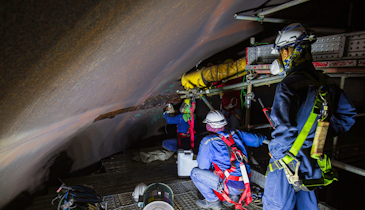The Bureau of Reclamation has released final technical reports supporting the Water Reliability in the West - 2021 SECURE Water Act Report.
Reclamation’s 2021 West-Wide Climate and Hydrology Assessment and seven individual basin reports provide detailed information on climate change impacts and adaptation strategies to increase water supply reliability in the West. A new 2021 SECURE Report Web Portal is also available to provide a user-friendly, web-based format for delivery of information in the reports.
“Western water supply and delivery systems are affected by changing hydrologic conditions and competing demands,” Deputy Commissioner Camille Calimlim Touton says. “These reports highlight Reclamation’s effort to use the best-available science to meet its mission while also collaborating with its water and power customers, states and local agencies, and tribes to address critical Western water management issues.”
PBS Article Examines How Wastewater Infrastructure Failures Impact Citizens
PBS recently featured a high-profile article titled “Wastewater is the infrastructure crisis people don’t want to talk about,” which examines the ways water/wastewater infrastructure failures are impacting lives in America.
The article includes an interview with author Catherine Coleman Flowers, who published a book in 2020 drawing attention to systemic inequalities that prevent poor and marginalized communities from gaining access to quality water/wastewater infrastructure.
According to PBS, the turning point for Coleman Flowers came when she returned home to work as an economic development coordinator in Lowndes County, Alabama — a region well-known for its failing wastewater infrastructure. Read the article here.
Scientists Monitoring Water Quality in Tampa Bay After Reservoir Incident
Researchers are working to track the release of nutrients into Tampa Bay after the recent reservoir incident at a phosphate processing plant in Piney Point, Florida. Scientists are concerned that the release of 173 million gallons of nutrient-rich wastewater could contribute to toxic algae blooms like the red tide.
While the released wastewater meets most water quality standards according to the state’s governor, it was noted to have elevated levels of nitrogen and phosphorus.
In response, the University of South Florida’s College of Marine Science is extensively monitoring water quality in Tampa Bay, according to CNN, although it will likely be weeks or months before researchers know the full scope of the effects.






